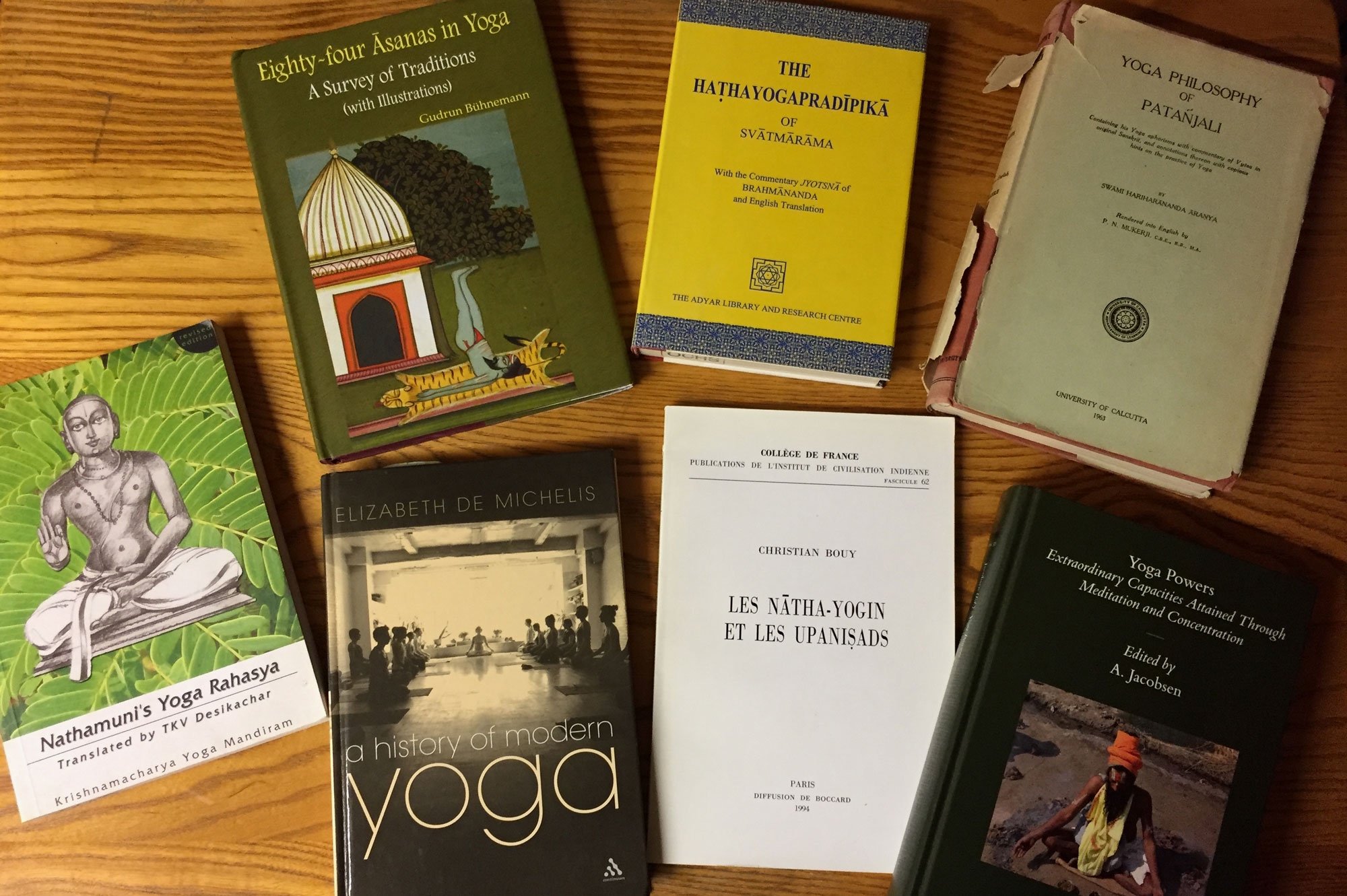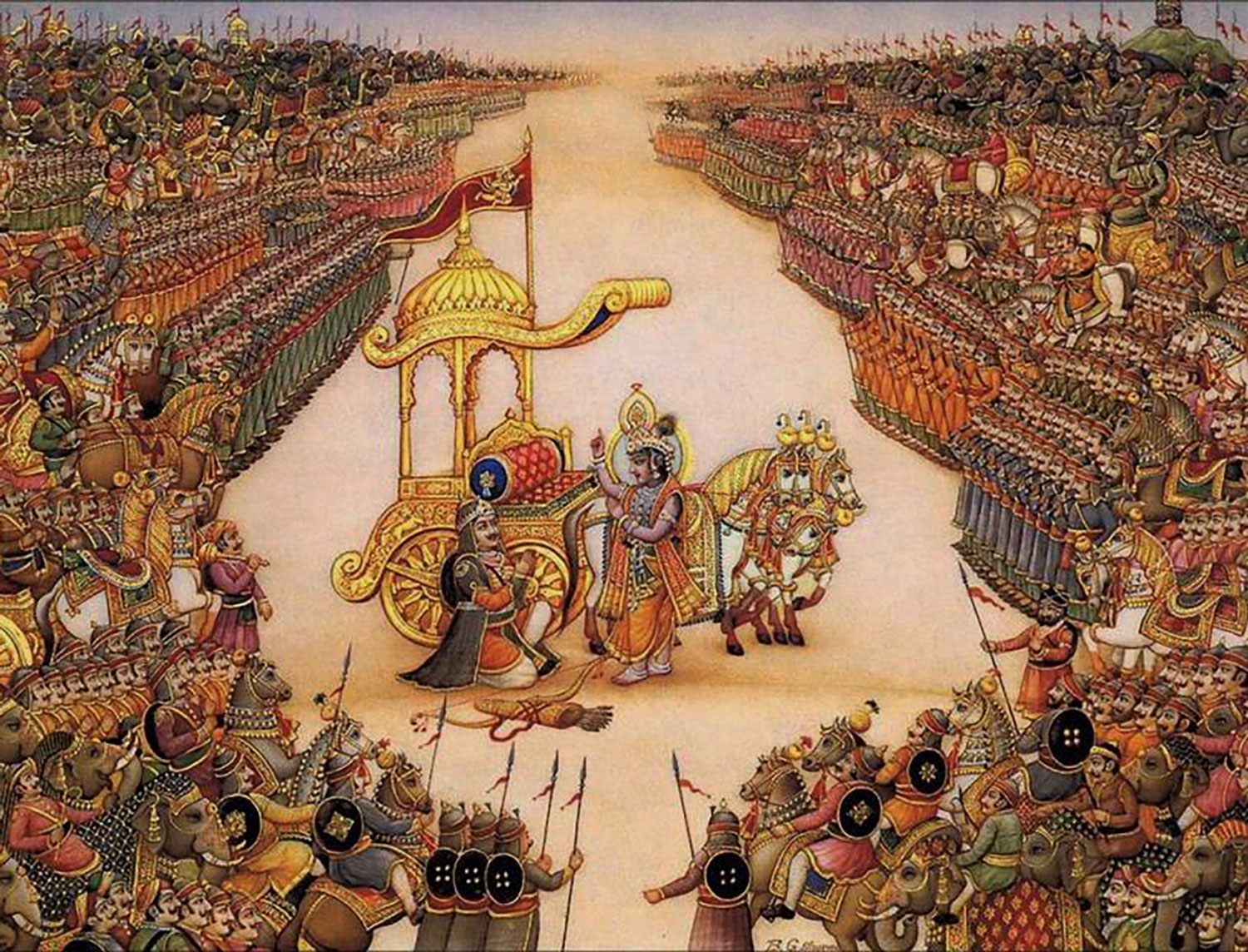
Courses
Practical yoga philosophy
Book Club: Yoga in Upanishads
The oldest descriptions of yoga in practical terms can be found in the Upanishads. They talk about focusing inward, revealing knowledge of an underlying oneness pervading all things. This is often why yoga is said to mean union. Over three weekly sessions, from 6 April, we’ll discuss the foundations of Upanishadic thought, before looking in detail at the Katha and Shvetashvatara Upanishads, which present yogic teachings. Mondays from 7:00 - 8:00 PM. Originally scheduled at Triyoga Camden, now online.
Book Club: Hatha Pradipika
How did physical yoga develop and what was its purpose? The word hatha is often used today for a gentler approach – perhaps in contrast to flow. However, its original meaning was “forceful,” and its powerful methods included arm balances. To explore where hatha came from, and how it relates to modern yoga, we’ll read the fifteenth-century Hatha Pradipika. Over four weekly sessions (from November 18, at Triyoga Camden), we’ll see how it builds on earlier teachings, combining Tantric ideas with ascetic techniques to transform the practitioner.
Book Club: The Yoga Sutra
Patanjali’s Yoga Sutra is often said to be the source of yogic teachings. Yet the text lists no postures, gives limited instructions and its ultimate goal is a state of isolation from worldly existence. So what makes it relevant to modern practitioners? Reading the sutras together – with reference to extracts from traditional commentaries – we will clarify their message and how it’s interpreted. Over four weekly sessions (from September 23, at Triyoga Camden), we will discuss how Patanjali’s ideas can be used to find freedom in embodied activity.
Ethics in Modern Yoga
Two of Patanjali’s eight limbs of yoga highlight ethics. Although the Yoga Sutra’s teachings on yama and niyama have social aspects, their ultimate goal is renouncing the world. Unless we retreat like Iron Age ascetics, might they need rethinking? Are other rules more relevant to modern challenges, from social instability to environmental meltdown? Can yogic ethics be adapted to serve new priorities? Come and share ideas and discuss alternatives! Booking now for Sunday, 18 August (14:30 - 17:00), at Triyoga Camden.
Book Club: The Power Of Now
Eckhart Tolle’s The Power of Now has inspired millions of readers to live in the moment, learning to let go of emotional pain and accept what happens. This involves seeing clearly how thoughts can control us. However, is there a risk that tuning out of the mind promotes dissociation, using spiritual ideas to avoid facing pain? Does it put too much faith in the power of the present? Over four weekly sessions (from June 18, at Triyoga Camden), we discuss the ideas behind Tolle’s teachings and ways to interpret them in practice.
Gently Forceful Yoga?
An afternoon workshop of history and practice. Most postural yoga is technically called “hatha”. Nowadays, this term is often used for a gentler class, but its original meaning was “forceful”. We’ll explore where this came from and how it made yoga more dynamic, evolving into modern forms of practice. We’ll start with texts, looking at the first to teach “hatha” by name (the Dattatreya Yogashastra), then implement some of their teachings. Booking now for Saturday, 13 April (14:30 - 17:00), at Triyoga Shoreditch.
Book Club: Siddhartha
Can wisdom be taught or does it have to be lived? Siddhartha is a classic account of the spiritual quest, exploring a path between self-indulgence and self-discipline. Over four weekly sessions (from 18 Feb), we’ll read Hesse’s novel and discuss its themes. How do we find the right teacher? Can we follow our hearts without being ruled by desires? Does silence speak louder than words? Can fiction get closer to truth than philosophy and history? Come and share your ideas!
New Year Philosophy
The start of the year brings a chance to reflect on what we want to develop and what needs letting go. In this workshop (on 6 Jan), we will explore these ideas through yogic texts and apply them in practice. Finding a balance of resolution and release is of vital importance in yoga philosophy. It’s the basis of guidance in the Yoga Sutra and the Bhagavad Gita. We will examine what this means by reading verses from both before exploring them practically.
Book Club: The Bhagavad Gita
How do we find peace in the midst of life’s challenges? Does yoga detach us or help us to act? What is our purpose? These timeless questions are the heart of the story in the Bhagavad Gita. It can be read in an evening and shape a whole lifetime. Exploring it together, we will find our own ways to relate to its insights. Over three weekly sessions (starting 26 Nov), we will look in depth at the Gita’s ideas, from teachings on yoga to moral dilemmas.








